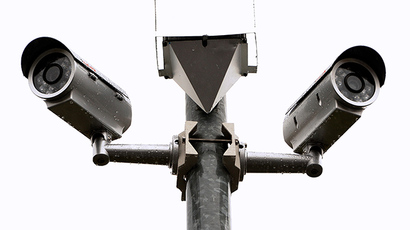Pentagon database amasses millions of non-military police records

A rarely reported but highly extensive database managed by a Pentagon law enforcement agency that contains millions of details including criminal records and minor infractions alike is being called into question.
Although the Law Enforcement Information Exchange, or LInX, contains police records pertaining to run-of-the-mill 911 calls and even mere traffic citations, millions of these records concerning harmless civilian activity are stored in a system run by the United States Naval Criminal Investigative Service, the primary law enforcement agency of the US Navy that’s headquartered at the Quantico, Virginia military base.
On Friday this week, an article published in the Washington Examiner by senior watchdog reporter Mark Flatten offered a detailed look at the database, and dared to ask questions about the sparsely discussed system amid growing concerns about government-sanctioned surveillance.
“Those fears are heightened by recent disclosures of theNational Security Agency spying on Americans, and the CIA allegedly spying on Congress,” Flatten wrote.
Unlike the NSA’s conduct or the Central Intelligence Agency’s activities, though, the LInX system is a US military operation. The NCIS got the initiative off the ground in 2003, and says on their website that it is “designed to enhance information sharing between local, state, and federal law enforcement in areas of strategic importance to the Department of the Navy.”
“LInX provides participating law enforcement partner agencies with secure access to regional crime and incident data and the tools needed to process it, enabling investigators to search across jurisdictional boundaries to help solve crimes and resolve suspicious events,” the website reads.
Indeed, a brochure available online from Northrup-Grumman — the military contractor who created the system — acknowledged that the info exchange was first launched in the Seattle, Washington metropolitan region, and has since spread to include other places near “bases of strategic importance.” In just over a decade, however, LInX managed to also garner the cooperation from more than 900 customer agencies over a large chunk of the United States, involving in all over 40,000 trained law enforcement users across almost entire states. The Examiner’s reporting suggests that the number of agencies involved now has surpassed 1,300, and the Federal Bureau of Investigation, the Department of Homeland Security and law enforcement groups across the country have all signed on.
According to that brochure, 99.97 percent of the Commonwealth of Virginia is now covered through LInX, in turn allowing police officers conducting operations outside the Pentagon in Arlington or at the beach near Norfolk to share information with one another — and with the Navy.
But that intelligence isn’t necessarily limited to what everyone would agree is information pertaining to bases of strategic importance. Incident reports and citations make up 40 percent of the database’s contents when combined, and traffic details, arrest information, pawn shop receipts and warrant into is included as well.
“It gives me the willies,” Eugene Fidell, a military law professor at Yale, told the Washington Examiner.
“Clearly, it cannot be right that any part of the Navy is collecting traffic citation information,” Fidell said. “This sounds like something from a third-world country, where you have powerful military intelligence watching everybody.”
“The history of these programs is that they tend to metastasize and that there is mission creep that involves gathering far more information than is needed,” added Cato Institute vice president and Examiner columnist Gene Healy. “In general, what you see in these programs is they start out very narrow and they expand beyond the limits of their original logic. Repeatedly throughout American history, what starts small becomeslarger, more intrusive,more troubling,” he said.














